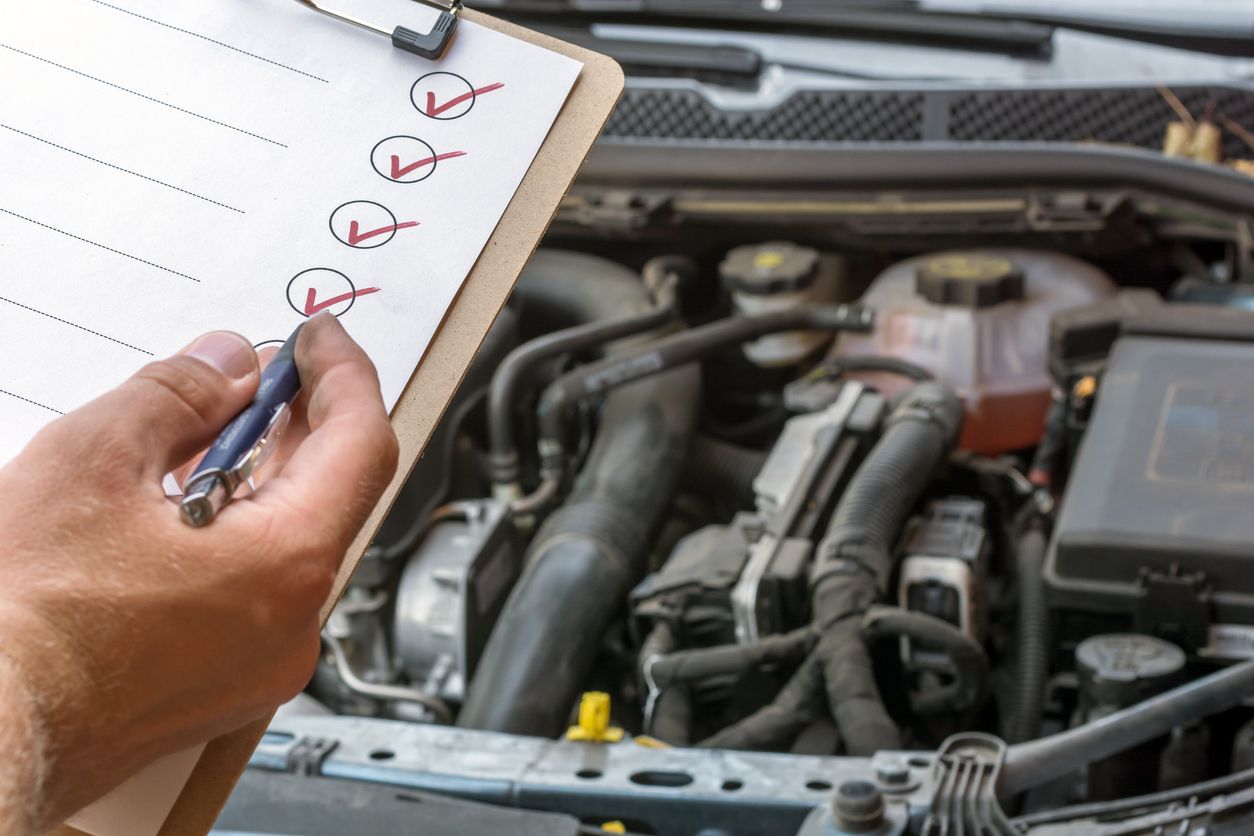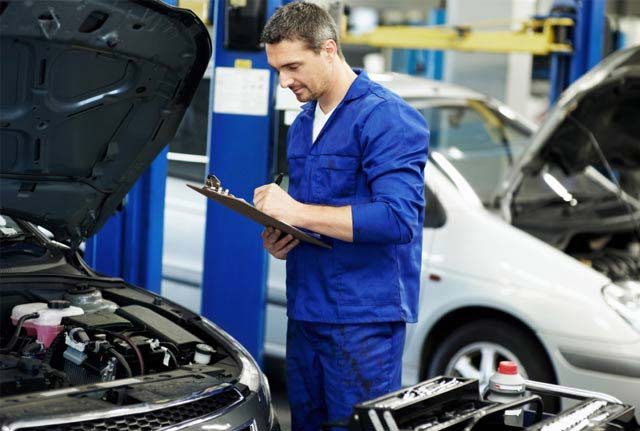All Categories
Featured
A vehicle getting too hot can be a difficult scenario, particularly if it occurs all of a sudden. High engine temperature levels can lead to extreme damages otherwise resolved quickly. Understanding what to do when your auto overheats and understanding how to avoid it can conserve you from costly repairs and guarantee your safety and security when traveling.
![]()
If Your Car Gets too hot,What to Do. Draw Over Securely. As quickly as you notice signs of getting too hot-- such as vapor rising from the hood, an increasing temperature level gauge, or alerting lights-- draw over to a secure location. Shut off the engine quickly to avoid further damage.
Turn Off the air conditioner and Activate the Heating system. Turn off the air conditioning to lower engine tons and button on the heating unit if you're unable to draw over right away. This redirects warm away from the engine and into the cabin, which can assist reduce the engine temperature temporarily.
Open Up the Hood (with Care) Wait on the engine to cool before opening up the hood. Opening it ahead of time can subject you to scalding steam or hot fluids. Once it's risk-free, check the engine for apparent indicators of problem, such as leaking coolant or a broken radiator pipe.
Inspect the Coolant Degrees. Include it to the tank or radiator when the engine has actually cooled down if you have coolant or water in your lorry. Prevent including cool water to a warm radiator, as it can create breaking.
![]()
Call for Help. If you're unable to diagnose or settle the concern, call a tow vehicle or roadside assistance. Driving with an overheated engine can result in significant damage, such as a blown head gasket or warped engine components.
Just How to avoid Your Automobile from Overheating. Check Coolant Degrees Regularly. Guarantee your vehicle constantly has the correct amount of coolant. Low coolant degrees are among one of the most typical reasons of getting too hot. If required., consistently inspect the coolant reservoir and leading it off.
Evaluate Radiator and Tubes. Try to find fractures, leakages, or loosened connections in the radiator and tubes. Replace any damaged components promptly to avoid coolant leaks.
Maintain Your Air Conditioning System. Flush and replenish the air conditioning system as advised in your lorry's owner guidebook. In time, old coolant can shed its efficiency and stop working to protect the engine from overheating.
Screen the Thermostat and Water Pump. A malfunctioning thermostat or water pump can interrupt the cooling system's function. Have these components examined during routine maintenance to catch issues early.
Avoid Straining Your Automobile. Too much weight puts added pressure on the engine and air conditioning system. Keep your load within the supplier's suggested limitations.
Watch the Temperature Scale. Take notice of your temperature scale, specifically throughout heat or when increasing steep inclines. If the gauge starts to climb up, take precautions such as minimizing rate or transforming off the air conditioner.
Verdict. Managing an overheated automobile doesn't have to be overwhelming if you recognize what actions to take. Acting rapidly and safely can stop additional damages to your engine. To decrease the threat of overheating, remain on top of normal upkeep, examine your air conditioning system, and drive sensibly. With appropriate care, you can maintain your engine running smoothly and stay clear of the aggravation of an overheated car.

If Your Car Gets too hot,What to Do. Draw Over Securely. As quickly as you notice signs of getting too hot-- such as vapor rising from the hood, an increasing temperature level gauge, or alerting lights-- draw over to a secure location. Shut off the engine quickly to avoid further damage.
Turn Off the air conditioner and Activate the Heating system. Turn off the air conditioning to lower engine tons and button on the heating unit if you're unable to draw over right away. This redirects warm away from the engine and into the cabin, which can assist reduce the engine temperature temporarily.
Open Up the Hood (with Care) Wait on the engine to cool before opening up the hood. Opening it ahead of time can subject you to scalding steam or hot fluids. Once it's risk-free, check the engine for apparent indicators of problem, such as leaking coolant or a broken radiator pipe.
Inspect the Coolant Degrees. Include it to the tank or radiator when the engine has actually cooled down if you have coolant or water in your lorry. Prevent including cool water to a warm radiator, as it can create breaking.

Call for Help. If you're unable to diagnose or settle the concern, call a tow vehicle or roadside assistance. Driving with an overheated engine can result in significant damage, such as a blown head gasket or warped engine components.
Just How to avoid Your Automobile from Overheating. Check Coolant Degrees Regularly. Guarantee your vehicle constantly has the correct amount of coolant. Low coolant degrees are among one of the most typical reasons of getting too hot. If required., consistently inspect the coolant reservoir and leading it off.
Evaluate Radiator and Tubes. Try to find fractures, leakages, or loosened connections in the radiator and tubes. Replace any damaged components promptly to avoid coolant leaks.
Maintain Your Air Conditioning System. Flush and replenish the air conditioning system as advised in your lorry's owner guidebook. In time, old coolant can shed its efficiency and stop working to protect the engine from overheating.
Screen the Thermostat and Water Pump. A malfunctioning thermostat or water pump can interrupt the cooling system's function. Have these components examined during routine maintenance to catch issues early.
Avoid Straining Your Automobile. Too much weight puts added pressure on the engine and air conditioning system. Keep your load within the supplier's suggested limitations.
Watch the Temperature Scale. Take notice of your temperature scale, specifically throughout heat or when increasing steep inclines. If the gauge starts to climb up, take precautions such as minimizing rate or transforming off the air conditioner.
Verdict. Managing an overheated automobile doesn't have to be overwhelming if you recognize what actions to take. Acting rapidly and safely can stop additional damages to your engine. To decrease the threat of overheating, remain on top of normal upkeep, examine your air conditioning system, and drive sensibly. With appropriate care, you can maintain your engine running smoothly and stay clear of the aggravation of an overheated car.
Latest Posts
Check Out the Top Auto Repair Offers in Montclare, Chicago
Published en
1 min read
Uncover Leading Vehicle Maintenance Services offered by Montclare Auto Repair – Expert Care for Your Vehicle
Published en
1 min read
Professional Residential Roofing Solutions You Can Depend On
Published en
1 min read
More
Latest Posts
Check Out the Top Auto Repair Offers in Montclare, Chicago
Published May 26, 25
1 min read
Uncover Leading Vehicle Maintenance Services offered by Montclare Auto Repair – Expert Care for Your Vehicle
Published May 25, 25
1 min read
Professional Residential Roofing Solutions You Can Depend On
Published May 24, 25
1 min read